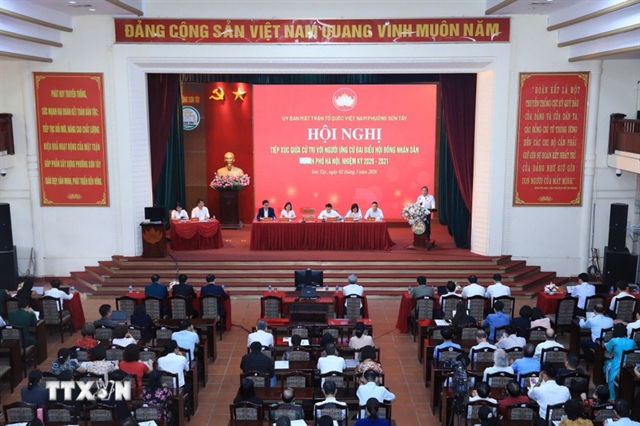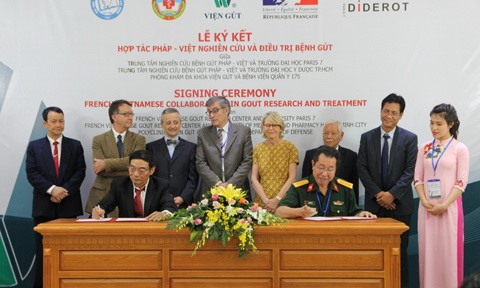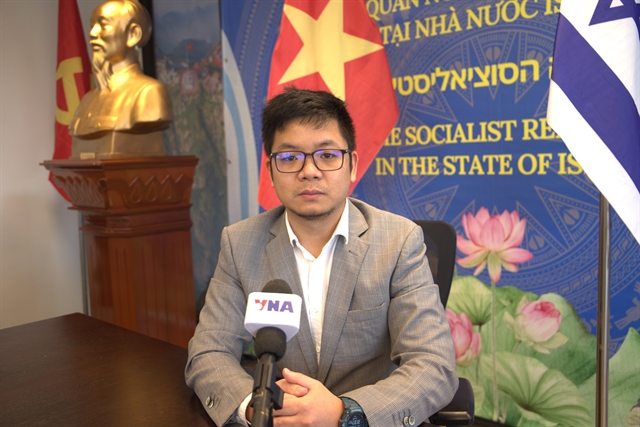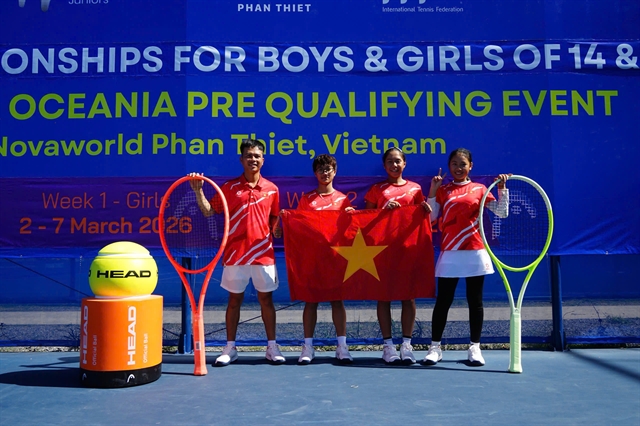 Society
Society

Thousands of gout patients with serious complications have been examined at the Polyclinics of the Gout Institute over the past 10 years, pointing to an alarming situation, according to doctors at the French-Vietnamese Gout Research Center.
 |
| Caption: An agreement between the Polyclinics of the Gout Institute and Military Hospital 175 formalise the ongoing cooperation between the two health institutions in managing gout patients with serious complications. Photo Ngô Đồng |
HCM CITY — Thousands of gout patients with serious complications have been examined at the Polyclinics of the Gout Institute over the past 10 years, pointing to an alarming situation, according to doctors at the French-Vietnamese Gout Research Center.
Rare in Europe and Northern America, severe gout appears frequently in Việt Nam and several other emerging countries.
In these countries, gout is seldom treated by lowering uric acid with hypouricemic drugs, but instead pain and inflammation are treated, Dr. Thomas Bardin, co-director of the French-Vietnamese Gout Research Center, said.
Gout is caused by an excess of uric acid, causing formation of crystals in the joints.
The crystals first generate acute excruciating pain episodes and will end in joint destruction as crystals infiltrate the joints of patients not treated with hypouricemic drugs, Bardin said at a meeting held on June 20 in HCM City.
If uric acid excess, the primary cause of the disease, is not dealt with, crystal deposits will grow heavier with time, leading to serious clinical consequences.
Crippling complications appear: joints are damaged and crystals accumulate in various parts of the body, especially the skin and the kidneys.
Health experts said that neglected gout leads to premature death. Gout is associated with hypertension, type 2 diabetes, cardiopathies, kidney failure, dyslipidemia and increased risk of cardiovascular death.
People generally think of gout as a disease acute in nature and untreatable, and generally address it with anti-inflammatory drugs harmful to the stomach, kidneys and heart.
Many patients use cortisol derivatives, which have anti-inflammatory effects but do not keep uric acid down and may cause many side effects, including obesity, diabetes, hypertension and osteoporosis.
In Việt Nam, patients sometimes use medicines from unknown sources. Despite their importance, recommendations about lifestyle such as physical exercise, weight loss, and restriction on alcoholic drinks.
The French-Vietnamese Gout Research Center is closely associated with the Polyclinics of the Gout Institute as there are numerous patients at the clinic whose conditions can be examined for research purposes.
The aim of the research is to improve gout care through optimising the gout treatment protocol, and to better understand the most serious complications of the disease, a goal that can only be achieved through cooperation at the university level between Việt Nam and France and, in the future, with other nations.
In 2011, the Gout Research Institute, now the French-Vietnamese Gout Research Center, was established with the purpose of improving gout management in interaction with the Polyclinics.
In 2014, the Gout Institute began a gout management programme by introducing EULAR (European League of Associations for Rheumatism) recommendations about hypo-uricemic treatment.
The management protocol, first developed by Vietnamese and then improved by French-Vietnamese cooperation, combines modern medicine with nonpharmacological therapies (diet, lifestyle changes, ailments), intensive follow-ups and full patient education.
On June 20, many cooperation agreements were signed at the Gout Institute.
The agreement between the French-Vietnamese Gout Research Center and University Paris 7 (also called Paris Diderot) officially recognised the French-Vietnamese Gout Research Center.
The agreement signed within the framework of health cooperation, an active field of France-Vietnam cooperation, will encourage bilateral exchanges between researchers on both sides.
An agreement between the French-Vietnamese Gout Research Center and the HCM City University of Medicine and Pharmacy was also signed for better cooperation between both sides and to assert the involvement of the Center in medical research in Việt Nam.
The agreement between the Polyclinics of the Gout Institute and Military Hospital 175-Defense Ministry will formalise the ongoing cooperation between the two health institutions in managing gout patients with serious complications.
This cooperation will help bring about a coordinated procedure which will provide better care for gout patients. —VNS




